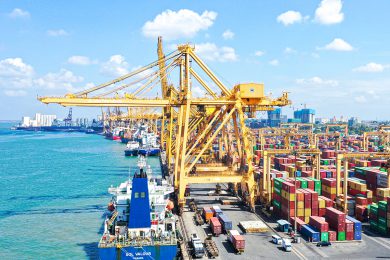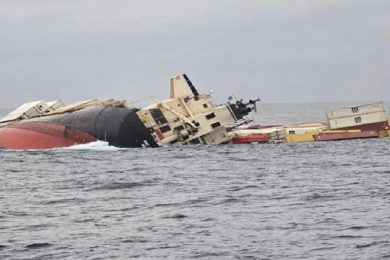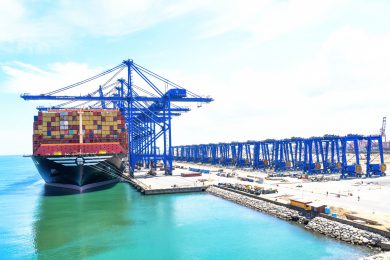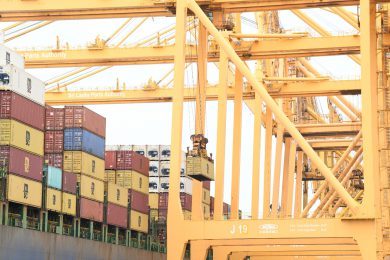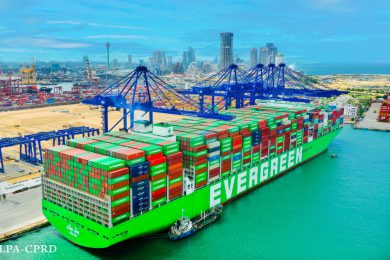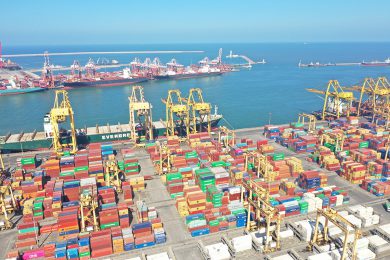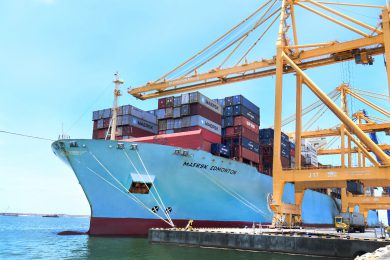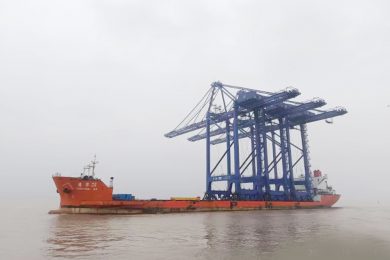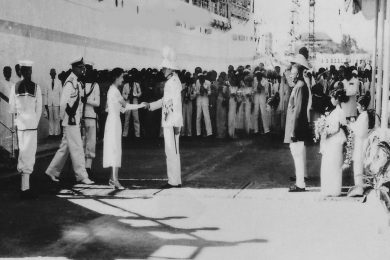At the end of 2019, the Port of Colombo was ranked 23rd with a score of 64.38 points. However, the port was able to improve its score this year and as of the third quarter it had a score of 73.88 points and was ranked the 18th best-connected port in the world.
Improves 5 spots on UNCTAD’S Port Liner Shipping Connectivity Index from Dec. 2019 UNCTAD says Colombo Port adversely affected by cabotage rules relaxation in India but shipping lines still view Colombo Port as more cost effective compared to Indian ports Sri Lanka ranked as 21st best-connect country in 3Q.
The Port of Colombo has improved five spots on the United Nations Conference on Trade and Development’s (UNCTAD) Port Liner Shipping Connectivity Index becoming the 18th best-connected port in the world in the third quarter of this year.
At the end of 2019, the Port of Colombo was ranked 23rd with a score of 64.38 points. However, the port was able to improve its score this year and as of the third quarter it had a score of 73.88 points and was ranked the 18th best-connected port in the world. However, UNCTAD pointed out that the port has been adversely impacted by the relaxation of cabotage rules in India, which came into effect from mid-2018. The relaxed rules allow foreign flagged vessels to transport cargo from one Indian port to another. Responding to developments in India, the Port of Colombo lowered its transshipment rates to retain transshipment business from India.
“Other Indian ports such as Visakhapatnam and Krishnapatnam are benefiting from increased transshipment and coastal traffic generated by a relaxation of the country’s cabotage rules. In Sri Lanka, subdued growth in Colombo reflected a declining trend in gateway traffic and some erosion in transshipment cargo because of the amended cabotage rules in India,” UNCATD stated in its latest review of the Maritime Transport 2020 report released yesterday.
However, Port of Colombo is still being viewed as more cost effective by shipping lines compared to key ports in India.
The report also highlighted that transshipment ports including Port of Colombo was affected by sudden blank sailing and service cancellations announced by the carriers due to impacts stemming from COVID-19 pandemic.
“Transshipment ports such as Colombo and Djibouti are also affected by such reductions, 13 percent and 11 percent respectively. In this context, it is argued that blank sailing could increase the bargaining power of carriers compared with terminals and canals, owing to increased arrears for terminal-handling charges, for example (International Transport Forum, 2020).”
Meanwhile, Sri Lanka as a country was ranked the 21st best-connect country in the third quarter of the year by scoring 71.36 points in UNCATD’S Liner Shipping Connectivity Index. The country’s score has improved by 14.25 percent in the latest index compared to its score one year ago.
In addition, Sri Lanka was among the top 10 countries in terms of their weighted average port hours, as well as the average vessel size in terms of container-carrying capacity (TEUS) in 2019.
UNCATD noted that transshipment ports including Colombo hold key advantages over other ports.
“Transshipment ports have some fundamental advantages, such as limited gateway cargo, with fewer outside trucks causing congestion in the yards, and potentially planned days ahead, with cargo arriving and departing in large batches. Last, but not least, most ports are operated by global terminal operators, and many are set up as cost centres or joint ventures with the ship operators.”
Courtesy: Daily Mirror



